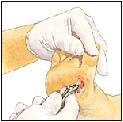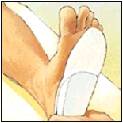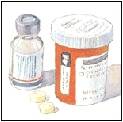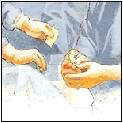Discover Outstanding Orthopedic Care in Prescott

Welcome to our health education library. The information shared below is provided to you as an educational and informational source only and is not intended to replace a medical examination or consultation, or medical advice given to you by a physician or medical professional.
With your doctor’s care, hot spots, small cracks, or sores can be treated before they get infected. If infection is already present, medications will probably be prescribed. Surgery may also be needed if the infection has spread.
Checking Your Feet
- Use a mirror to look at the bottom of your feet each day. By doing so, you can catch small skin changes before they turn into ulcers.
- Call your doctor if you notice hot spots, red streaks, swelling, or any cracks or sores.
- Check the soles and insides of your shoes before putting them on. Remove any objects, such as pebbles.
Improving Your Overall Health
Do your best to control health problems that may affect your feet, such as diabetes and kidney disease. Eat right and exercise. If you are given medications, take them as directed. If you smoke, stop. Smoking reduces blood flow and slows healing. Limiting alcohol intake may also be helpful.
Cleaning the Ulcer

To assist healing, thickened skin around the ulcer may be cleaned away. Medicated ointment or cream may be applied to prevent infection. Sometimes a special dressing is used to help keep the wound dry.
Reducing Force

To take pressure off hot spots and ulcers, your doctor may prescribe orthoses. These custom-made shoe inserts absorb or divert pressure from problem areas. Special shoes or temporary casts may also be used.
Using Antibiotics

To control or prevent infection, your doctor may prescribe antibiotics. Take them all, and take them as directed. If you stop using an antibiotic too soon, the infection may come back.
If Surgery Is Needed

Surgery may be needed if infection enters deep tissues or bone. In such cases, your doctor cleans away the infection while removing as little tissue or bone as possible. You may also be given intravenous (IV) antibiotics to fight the infection.
